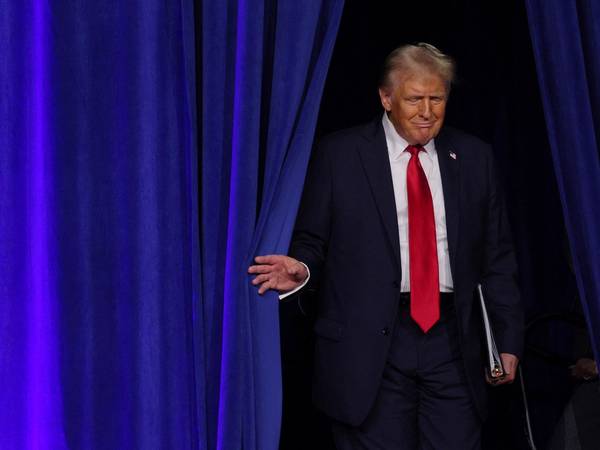Donald Trump won. Some Iranians are thrilled, seeing him as a catalyst for the collapse of the Islamic Republic. Others are gutted, thinking Kamala Harris would have meant less sanctions and some relief from unbearable economic pressure.
Then there are those, a significant number it seems, who are indifferent. They have lost hope of any change for the better.
“It makes no difference to me who’s in the White House, cause I see the problem here at home,” says Mahmoud, a well-educated pensioner who has “seen it all”.
“We are where we are, barely living, because of our rulers’ incompetence and bigotry. They don’t care if sanctions have broken our backs. They can end this if they want to. They could back down and reach an agreement with either Harris or Trump,” Mahmoud added.
US presidential elections are normally followed by many in Iran. But this time there was not so much appetite, perhaps because people are struggling more than ever, but also because many have come to believe that things go only downhill in Iran, whoever sits in the Oval Office.
The markets were less indifferent though. Iran’s currency dropped further as soon as Trump was declared winner, breaking its record low of the week prior.
“Trump will definitely impose more sanctions on Iran and back Israel in any attack against us,” says Hossein, 45, working in advertisement. “All we had has been wiped off by skyrocketing inflation, partly due to sanctions and partly due to corruption and incompetence at home. How much more we can take, how far lower we can go, I’m not sure.”
Recent official data suggests 30 percent of Iran’s population live below the poverty line. This is double the figure from two decades ago. The impact of sanctions is impossible to deny. But on the streets and at family gatherings, most appear to blame the Islamic Republic for it, not the United States.
Expletives are common when people talk about Iran’s foreign policy and support for armed groups across the region. The government announced last month that the military budget would be almost tripled in the upcoming Iranian calendar year. ‘Why spend so much elsewhere when so many are in need at home,’ is something you hear every day.
Hessam, a 29-year old photographer, is keen to see the back of this “wasteful policy” that he believes is at the heart of Iranians’ misery. “I hope Trump’s arrival ends the Islamic Republic’s game,” he says, “I don’t expect the regime to fall, and I fear war, but I think a Harris victory would have encouraged the regime to continue with its policies. Now they have to think twice.”
Some media reports suggest that president Masoud Pezeshkian was hoping for another Democratic administration. Hardliners have warned him against any talks with Trump, who has “blood on his hand”, that of IRGC top general, Qasem Soleimani.
The reactions to Trump’s win are not just political. Many of those who aspire to move to the US are disheartened. The memory of the 2017 travel ban is still fresh.
Samin, a computer science graduate, is one of many thousands who are at various stages of a long process to make a home in Europe or North America. “I was hoping to move to the US. I have submitted several applications and am waiting,” Samin says. “But with Trump’s return and the immigration policy that we all know well, I’m not so sure. I don’t know what future awaits me.”
It’s not clear if a Trump administration would make Samin’s move any harder. But that’s the general perception. So is the idea—rightly or wrongly—that the president-elect can play a significant role in determining the fate of the Islamic Republic one way or another.
